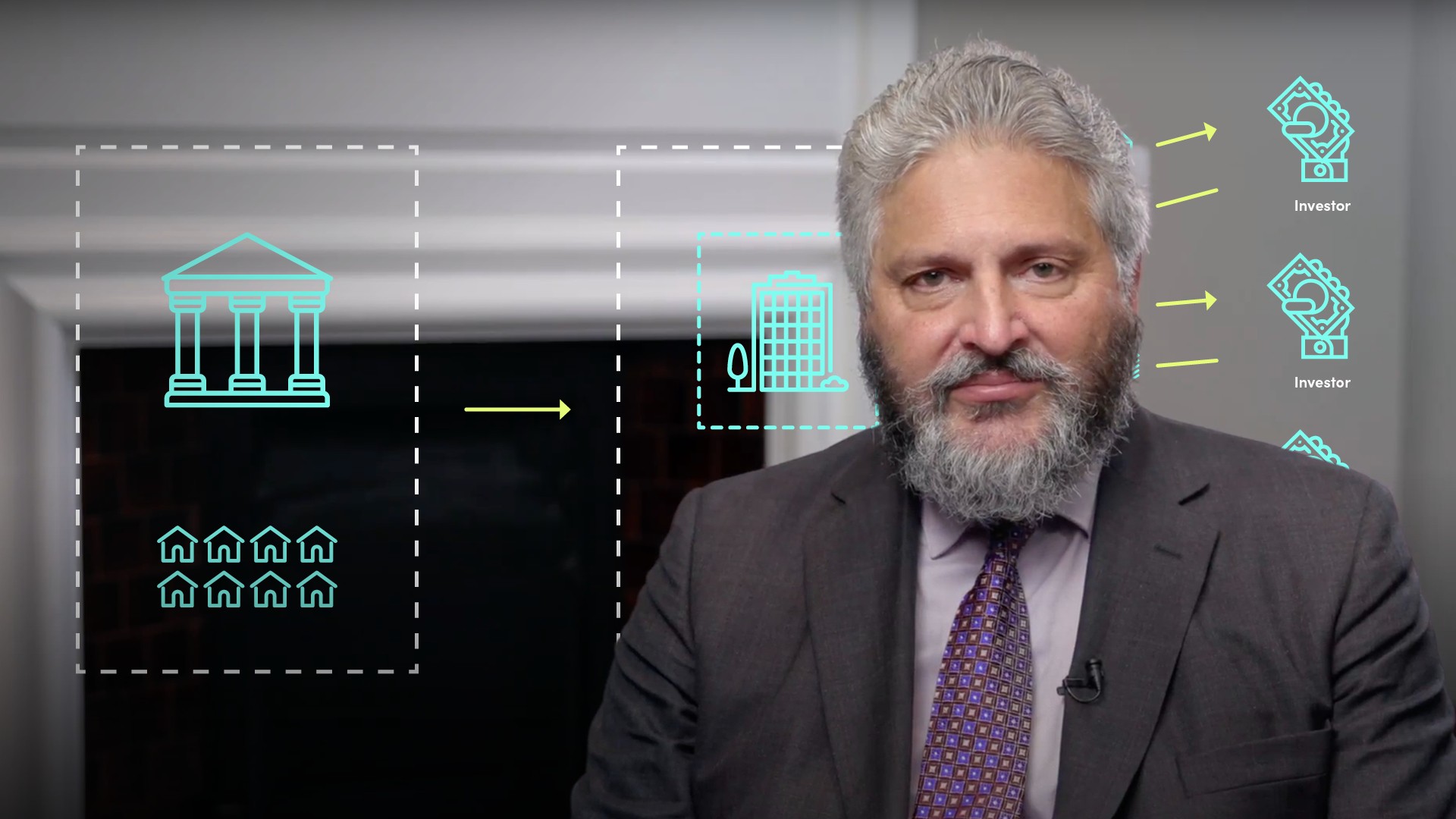
Social Bond Principles

Keith Mullin
35 years: Capital markets editorial
The Social Bond Principles are a set of standards enforced by the International Capital Market Association (ICMA). In this video, Keith sets out the clear principles relating to reporting, use of proceeds, and external reviews.
The Social Bond Principles are a set of standards enforced by the International Capital Market Association (ICMA). In this video, Keith sets out the clear principles relating to reporting, use of proceeds, and external reviews.
Subscribe to watch
Access this and all of the content on our platform by signing up for a 7-day free trial.

Social Bond Principles
6 mins 50 secs
Key learning objectives:
Explain the external review element
Define Social Bond Principles
Understand what the SBP says about the use of proceeds
Understand what the SBP says about project evaluation and selection
Understand what the SBP says about management of proceeds
Overview:
The Social Bond Principles are voluntary standards administered by the International Capital Market Association. The four key components are: use of proceeds, project evaluation and selection, management of proceeds and reporting. The SBP also recommend that issuers seek external review.
Subscribe to watch
Access this and all of the content on our platform by signing up for a 7-day free trial.
What are the Social Bond Principles?
The Social Bond Principles are voluntary standards administered by the International Capital Market Association. They provide a critical set of market-practice guidelines. They have four core components: Use of Proceeds, Project Evaluation and Selection, Management of Proceeds and Reporting.
What do the SBP say about use of proceeds?
The basis of any Social Bond. Use of proceeds should be formally described in legal documentation. Social Projects should provide clear social benefits which are assessed and, ideally, quantified by the issuer. If proceeds are used for refinancing, the SBP recommend issuers provide an estimate of the share of financing vs. re-financing, and clarify which investments or projects may be refinanced.
What do the SBP say about project evaluation and selection?
This says the issuer of a Social Bond should communicate to investors:
- The social objectives;
- How projects fit within eligible Social Project categories;
- Related eligibility criteria, including exclusion criteria or any other process applied to identify and manage social or environmental risks associated with the projects. Issuers are also encouraged to disclose any social standards or certifications referenced in project selection.
What do the SBP say about management of proceeds?
Issuers should formally track net proceeds and the balance of net proceeds should be adjusted from time to time to match allocations to Social Projects. The issuer should tell investors the intended types of temporary placement for the balance of unallocated proceeds. And the SBP recommend that management of proceeds be verified by auditors or other third parties.
What do the SBP say about reporting?
Issuers should provide up-to-date information on use of proceeds, renewed annually until full allocation, and on a timely basis. This should list the projects financed, a description of the projects, amounts allocated and expected impact. The SBP recommend the use of qualitative performance indicators and quantitative performance measures (e.g. number of beneficiaries from target populations.
What do the SBP say about external reviewing?
The SBP recommend that issuers appoint external review providers to confirm alignment of bonds with the SBP. Review providers are grouped into the following types:
- A Second Party Opinion from an institution independent from the issuer
- Independent verification, typically relating to business processes and/or social criteria.
- Certification, where issuers can have their Social Bonds, Social Bond framework or Use of Proceeds certified against external standards or labels.
- Social Bond Scoring or Rating, where issuers can have their Bonds, Bond frameworks or key features evaluated by third parties, such as research providers or rating agencies.
Subscribe to watch
Access this and all of the content on our platform by signing up for a 7-day free trial.

Keith Mullin
There are no available Videos from "Keith Mullin"





























